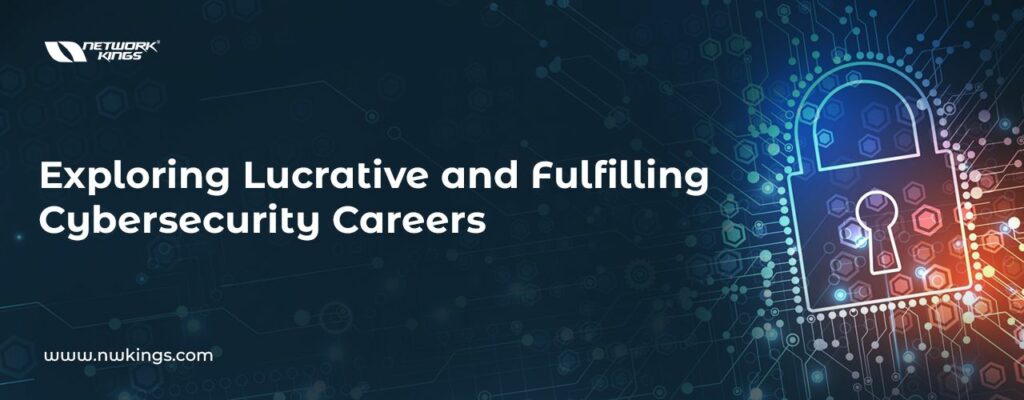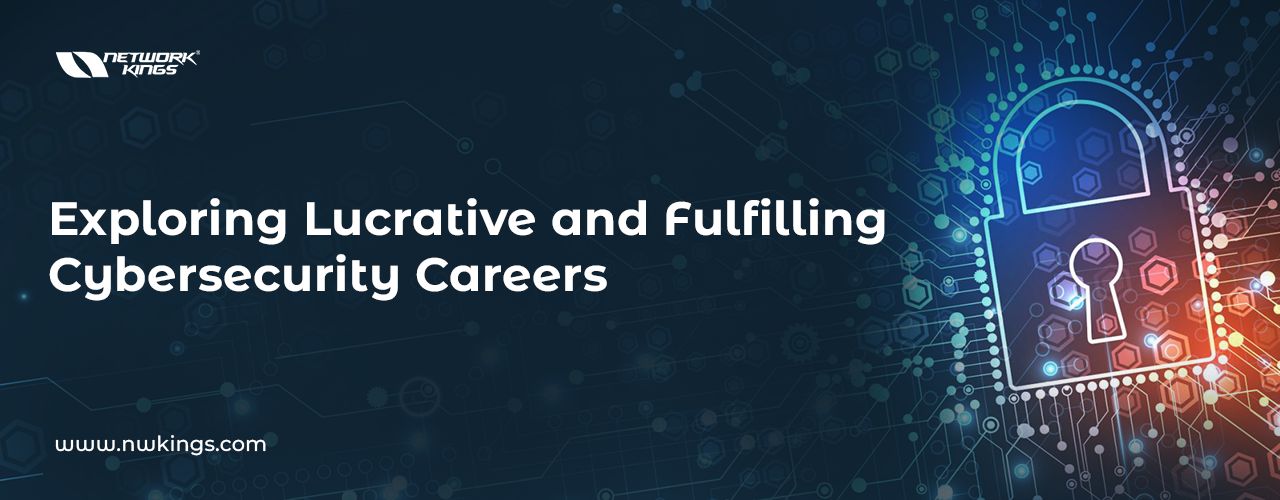
Cybersecurity has become an increasingly crucial field in today’s digital age. With the rising number of cyber threats, the demand for skilled professionals in this domain is skyrocketing. In this blog post, we will dive into the world of cybersecurity careers, exploring the best options for both entry-level and experienced professionals. Whether you are just starting your journey or looking to switch careers, this comprehensive guide will provide valuable insights to help you make informed decisions.
What is the Cybersecurity career?
In today’s digital world, cybersecurity has become an important part of every company’s strategy for sustainability, safety, and development. As businesses grow, the need for cybersecurity talent will only persist to grow in 2023 and beyond.
Cybersecurity is a growing industry that is still in need of qualified professionals. The multinational cyber security market is anticipated to grow from $170 billion in 2017 to $202 billion in 2023.
The need for cyber security jobs has increased enormously over the past few years. More than 1 million cybersecurity jobs will be open by 2023, but less than 400,000 cybersecurity professionals will be prepared by then. Cybersecurity is an ever-growing industry. It is expected to rise by 11% in 2023 and by 20% in 2025. This is a fast-paced career with a median salary of $81,000.
What Are the Benefits of Having a Career in Cybersecurity?
Cybersecurity is a growing industry with numerous opportunities for change and evolution. It is an industry that has the possibility to be lucrative, but it also comes with a lot of accountability.
Cybersecurity professionals are accountable for saving their company’s information and data from attacks by hackers, viruses, or other cyber threats. These professionals collaborate in teams with other IT experts, such as software developers or programmers.
Here are some of the many advantages of this career path:
- The capability to make a difference in the world by saving people and businesses from cyber dangers.
- The chance to acquire new skills and knowledge linked to the field.
- Get a chance to work remotely or on location.
What are the best Cybersecurity careers?
CISO: A Chief Information Security Officer (CISO) is a senior-level officer who assures the full security of information in an organization. CISOs are accountable for designing and supporting information security and risk management programs, and they are also needed to interact with stakeholders and brief them about information security concerns.
Usually, one becomes a CISO after having sound experience in a few other cybersecurity job roles.
Security Architect: A Security Architect is for creating strong security structures that prevent malware attacks. They perform susceptibility tests and provide technical help to the other security team members.
Cybersecurity Engineer: Cybersecurity Engineers work on preparing security measures to control the organization from a cyberattack. They are accountable for safeguarding the organization’s networks and data. They devise cybersecurity platforms and cooperate with the other teams to support overall security.
Malware Analyst: A malware analyst recognizes and explores cyber threats such as viruses, worms, bots, and trojans to comprehend their nature. They create malware protection tools, and finally, they document the methods to avoid malware dangers.
Penetration Tester: A penetration tester, also known as an ethical hacker, is a network security consultant who influences a system’s exposures just like a hacker would. They devise unique penetration tools, and they also document the test results.
Computer Forensics: Computer Forensics Analysts operate on cyberattack cases to collect digital proof and to recover data. They work on retrieving deleted, manipulated, or stolen data.
Application Security Engineer: The application security engineer is the one who designs, executes, and supports the safety of a corporation’s applications. They are accountable for devising, and executing policies that will against both internal and external dangers.
Cloud Security Specialist: Because of the increased dependence on the cloud, cloud security specialists are in high need and will stay so in the future. The role of a cloud security specialist is to save data, systems, and networks from cyber-attacks. They do this by investigating hazards and exposures, enforcing protection, scanning networks for intrusions, and managing adherence to laws.
Database Administrator: A database administrator is a person who controls and scans the database. They are accountable for planning, designing, and supporting the database. Database administrators also need to provide data protection and safety of the data in the database. Database Administrators are required for the smooth functioning of any organization. They are accountable for ensuring that the databases are operating efficiently and securely. Database administrators need to have a good knowledge of databases, IT infrastructure, and programming languages. This role is in high demand and has a handsome salary.
Incident Manager: An incident manager is a person who is for handling and fixes incidents. They are called in when an incident occurs, and they are the ones who will set it. A significant element of this job is that they need to be able to manage all kinds of situations, which means they need to think on their feet. The salary of an incident manager relies on the company they work for, their location, and their experience. However, an average incident manager’s salary is around $65,000 per year.
Entry-Level Cybersecurity Careers:
If you are just starting your journey in cybersecurity, there are several entry-level roles that can provide a solid foundation for your career growth. These roles often require foundational knowledge of cybersecurity principles and relevant certifications.
Cybersecurity Specialist – As a cybersecurity specialist, you will assist senior professionals in monitoring systems, conducting risk assessments, and implementing security measures. This role allows you to gain practical experience while learning from experienced mentors.
Security Operations Center (SOC) Analyst – SOC analysts monitor networks for potential security threats and respond to incidents. They analyze alerts generated by security tools, investigate anomalies, and escalate issues as necessary.
Security Administrator – Security administrators are responsible for managing user access controls, implementing security policies, and maintaining security systems. This role requires strong attention to detail and a solid understanding of security best practices.
Junior Penetration Testers – Junior penetration testers assist ethical hackers in conducting vulnerability assessments and security audits. They learn how to identify weaknesses in systems and perform penetration testing under supervision.
What Skills are required for a successful Cybersecurity careers?
To excel in a cybersecurity career, it is essential to develop a strong skill set that aligns with industry demands. Here are some key skills to focus on:
Technical Knowledge – Stay updated with the latest security technologies, tools, and techniques. Familiarize yourself with network protocols, operating systems, programming languages, and databases commonly used in the industry.
Problem-Solving Skills – Cybersecurity professionals often encounter complex challenges that require critical thinking and problem-solving abilities. Enhance your logical reasoning skills and practice troubleshooting various security issues.
Continuous Learning – The field of cybersecurity is constantly evolving. Stay curious and invest time in continuous learning through certifications, online courses, workshops, and industry conferences.
Communication Skills – Effective communication is crucial in cybersecurity roles that involve collaboration with cross-functional teams or client interactions. Develop strong written and verbal communication skills to articulate technical concepts clearly.
Best Cybersecurity Courses for a Successful Career
Here are the popular certification courses in Cybersecurity:
CeH v12: A Certified Ethical Hacker (CEH) course is a skilled professional training program that covers a wide range of topics, including network security, cryptography, web application security, and system hacking. The sole purpose of the CEH course is to recognize individuals who have demonstrated the knowledge and skills to understand and identify weaknesses and vulnerabilities in a computer system through CEH training. During the course program, you will learn to prevent the chance of any malicious hacking that can exploit the system if not detected on time. The CEH Certification course has a global recognition that imitates the skills and techniques of Hostile Hackers.
CISSP: The CISSP training program comprises designing, implementing, and managing best-in-class cybersecurity programs. With a CISSP certification, one can validate one’s expertise and evolve as an (ISC)² member by opening an expansive exhibition of premier resources, scholarly devices, and peer-to-peer networking possibilities.
CompTIA Security+: The CompTIA Security+ course certification is offered by the non-profit trade association CompTIA which focuses on providing interactive information along with managing the risks. CompTIA Security+ training is considered an entry-level credential of CyberSecurity which helps in learning all the foundational skills that demand cybersecurity skills including system administrator, security administrator, and network administrator for IT Jobs.
CompTIA PenTest+: The CompTIA PenTest+ Certification course provides the skills required to plan, scan, and perform vulnerability and penetration testing as it is both, a knowledge-based and performance-based PenTest+ exam. Since the PenTest+ course refers to testing a computer system, network, or web application to find security vulnerabilities that can be damaged by malicious cyber attacks, CompTIA PenTest+ training covers the security of all the technologies. It is the only exam available to date that covers all the vulnerability management requirements. The exam includes cloud, hybrid environment, web applications, Internet of Things (IoT), and traditional on-premises testing skills.
CompTIA A+: The CompTIA A+ course certification is offered by the non-profit trade association CompTIA which focuses on providing all the knowledge and skills associated with the Initial Security Protocols in IT Systems and also teaches how to run and manage different kinds of OS on Multiple Devices at the same time. CompTIA A+ training also prepares you to learn and run the basic level Data Backup and Recovery Services. A+ course is considered a certification course that can brush up your skills in troubleshooting and supporting and maintenance of IT Infrastructure.
CompTIA Network+: The CompTIA Network+ course certification is offered by the non-profit trade association CompTIA which helps you learn the skills essential to establish, maintain, and troubleshoot important networks without any threat or danger as a lot of businesses are dependent on those networks. CompTIA Network+ training also prepares you to provide support to networks on any kind of platform. The CompTIA Network+ course is known to be the way to progress for those Individuals who want to carry on further to the path of CompTIA’s Network+ training certification as it helps design and implement functional networks.
CompTIA CySA+: The CompTIA CySA+ course certification is offered by the non-profit trade association CompTIA which helps you in emphasizing software and application security, automation, threat hunting, and IT regulatory compliance, which affects the daily work of security analysts.
Where to pursue Cyber Security courses?
You can pursue Cybersecurity Training from Network Kings that will offer benefits like:
- Networking: Build your network with our team to connect with them for the best Cybersecurity training.
- Comprehend with the best: Learn from industry professional experts.
- Structured Learning: Network King’s curriculum gives the best learning experience, designed by professionals.
- Gain Certification: You will get certification with our Cybersecurity certification course. It will improve your resume and career opportunities.
- World’s largest labs: Network Kings have 24/7 access to virtual labs with zero downtime.
- Career Guidance: With Network Kings, you will get a career consultant via career consultants.
- Tricks for Interviews: Network Kings will offer tips and tricks to crack interviews and Cybersecurity exams.
- Recorded lectures: With recorded lectures, you will get access to the recorded lectures to learn at flexible hours progress.
Conclusion:
The field of cybersecurity offers a multitude of exciting career opportunities for individuals passionate about protecting digital assets from cyber threats. Whether you are interested in entry-level positions or seeking advanced roles as an experienced professional, this comprehensive guide has provided valuable insights into various cybersecurity careers available today. By developing the necessary skills and staying updated with industry trends, you can embark on a successful journey towards a rewarding and fulfilling cybersecurity career.


